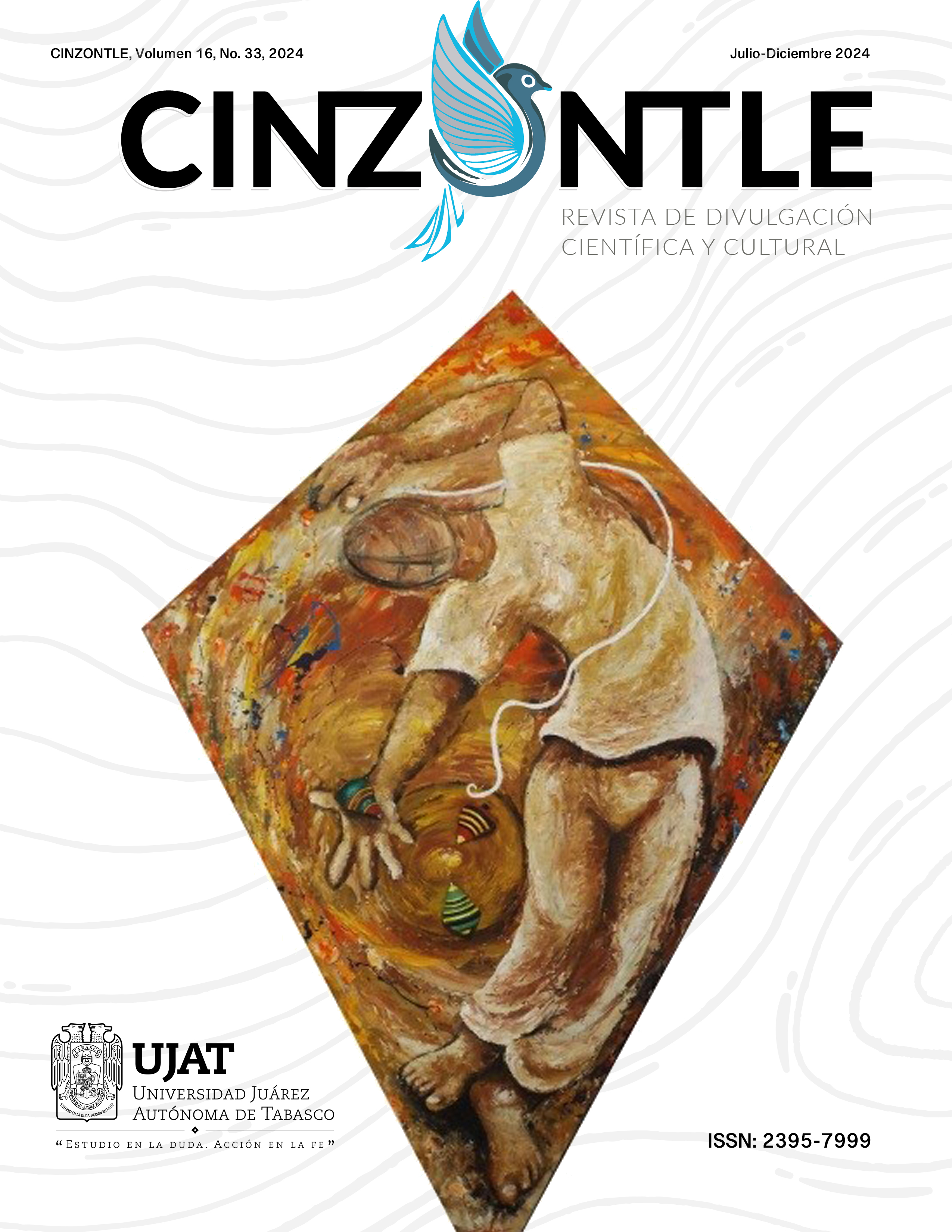Power relationship in human rights with dignity of the adolescent in Mexico.
DOI:
https://doi.org/10.19136/cz.a16n33.6420Keywords:
human rights, boys and girls, dignity, adolescenceAbstract
The complex relationship between power and dignity of adolescents in Mexico, highlighting human rights violations. Even more so is the lack of effective implementation of laws that protect adolescents, as well as the stigmatized perception that authorities have about them. Despite regulatory advances, the implementation of regulations that protect this group remains deficient, which restricts their ability to fully exercise their rights and maintain their dignity. Through a structuralist and realistic legal analysis, the study evaluates the effectiveness of the legal system and reveals significant obstacles in the application of public policies. The stigmatized perception that authorities have towards adolescents is criticized and a collaborative approach between various social actors is proposed to improve the situation. The importance of international instruments is mentioned, such as the Convention on the Rights of the Child and other covenants, which recognize specific rights for adolescents and establish protection mechanisms. Highlights the urgency of strengthening the protection of adolescent dignity, emphasizing that, although legal frameworks exist, the actual practice by institutions remains insufficient, which shows the vulnerability and the need to make effective the tangible rights of adolescents in Mexico.References
Álvarez, M. M. (2022). ¿Sujetos de derecho u objetos de control? El proceso de intervención
gubernamental con niñas, niños y adolescentes migrantes no acompañados en Cádiz
(España) y Tapachula (México). Migraciones, 54, 1–19.
https://doi.org/10.14422/mig.i54y2022.004
Boratyńska, M. (2023). The Dysfunctionality of the Protection of the Rights of a Minor Patient.
Part 1: Representation of Interests and the Right to Information. Annales Uni
versitatis Mariae Curie-Skłodowska, Sectio G (Ius), 70(1), 39–69.
https://doi.org/10.17951/g.2023.70.1.39-69
Camargo, B. A., & Vázquez-Maguirre, M. (2021). Humanism, dignity and indigenous justice:
the Mayan Train megaproject, Mexico. Journal of Sustainable Tourism, 29(2–3), 372–
https://doi.org/10.1080/09669582.2020.1758707
Danewid, I. (2022). Policing the (migrant) crisis: Stuart Hall and the defence of whiteness.
Security Dialogue, 53(1), 21–37.
https://doi.org/10.1177/0967010621994074
Daniyarov, S. D. (2024). FEATURES OF CRIMINAL LIABILITY FOR ABUSE OF AUTHORITY AND
OFFICIAL AUTHORITY. Journal of Actual Problems of Jurisprudence, 109(1).
https://doi.org/10.26577/JAPJ2024109113
García Villegas, J. E., & Aude Díaz, R. (2023). Introducción al sistema integral de justicia
penal para adolescentes. Tirant Lo Blanch.
Gómez Barrera, A. M. (2022). Justicia penal para adolescentes. Aproximación a un derecho
especializado. Tirant Lo Blanch- Facultad de derecho, UNAM.
Gordillo-García, J. (2023). Social movements and political-emotional communities: an ap
proach from the Movement for Peace with Justice and Dignity in Mexico. Social Move
ment Studies, 1–18.
https://doi.org/10.1080/14742837.2023.2216646
Kathuria, S., Rawat, P., Singh, R., Gehlot, A., Kathuria, A., & Pandey, S. (2023). Technical
Approach Towards Elderly Right to Health and Well-Being. 2023 International Con
ference on Artificial Intelligence and Smart Communication (AISC), 238–242.
https://api.semanticscholar.org/CorpusID:257942504
Khayitov, M. (2022). CERTAIN ASPECTS OF THE DEPRIVATION AND RESTRICTION OF PAREN
TAL RIGHTS AS A MEASURE OF LEGAL INFLUENCE. Jurisprudence, 2(6), 81–89.
https://doi.org/10.51788/tsul.jurisprudence.2.6./BULS2452
Kovačević Lepojević, M., Mijatović, L., & Gutvjan, N. (2023). EXTERNALISING BEHAVIOUR
PROBLEMS IN ADOLESCENCE PREDICTED BY PARENTAL MONITORING, PRACTICES AND
ATTACHMENT: EXPLORING THE MODERATING ROLE OF GENDER. Annual of Social Work, 29(3), 413–441.
https://doi.org/10.3935/ljsr.v29i3.433
Lacerie Hernández, R., & Sánchez Pérez Felipa, N. (2023). El adolescente en México: del
trabajo permitido al trabajo familiar. LEX - REVISTA DE LA FACULTAD DE DERECHO Y
CIENCIAS POLÍTICAS, 21(31), 379.
https://doi.org/10.21503/lex.v21i31.2481
Leiter, B. (2022). ¿Qué es una teoría realista del derecho? Ciencia Jurídica, 11(21), 183–195.
https://doi.org/10.15174/cj.v11i21.406
Ley General de los Derechos de Niñas, Nños y Adolescentes. (2014) México.
https://www.diputados.gob.mx/LeyesBiblio/pdf/LGDNNA.pdf
Maltos Rodríguez, M. A. (2022). Mecanismos Alternativos de Solución de Controversias con
enfoque restaurativo para adolescentes. In S. M. Cobo Téllez (Ed.), Manual de justicia
penal para adolescentes (pp. 135–210). Suprema Corte de Justicia de la Nación.
https://www.supremacorte.gob.mx/derechos-humanos/sites/default/files/Publica
ciones/archivos/2022-11/Manual%20de%20justicia%20penal%20para%20adoles
centes.pdf
Moguillansky, C. (2019). Psicopatología del poder [Psychopathology of power]. The
International Journal of Psychoanalysis, 100(3), 627–630.
https://doi.org/10.1080/00207578.2019.1594824
Montoya González, R., & Steele Garza, J. G. (2024). acceso a los mecanismos alternativos
de solución de controversias en el Sistema Integral de Justicia Penal para
Adolescentes en México. REVISTA DYCS VICTORIA, 16–27.
https://doi.org/10.29059/rdycsv.v6i2.198
Patiño Lara, S. A. (2022). La jurisprudencia especializada en el Sistema de Justicia Penal para
Adolescentes y la transversalidad del juicio de amparo. In S. M. Cobo Téllez (Ed.),
Manual de justicia penal para adolescentes (pp. 539–588). Suprema Corte de Justicia
de la Nación.
https://www.supremacorte.gob.mx/derechos-humanos/sites/default/files/Publica
ciones/archivos/2022-11/Manual%20de%20justicia%20penal%20para%20adoles
centes.pdf
Peixoto, F. C. de A. (2023). DISCURSO SOBRE O MÉTODO JURÍDICO: Hermenêutica pós-gad
ameriana do Direito e Geometria. Complexitas – Revista de Filosofia Temática, 8(1).
https://doi.org/10.18542/complexitas.v8i1.15285
Rodríguez Moya, E. S. (2019). Método estructuralista y análisis parcial. Una revisión desde
sus consecuencias filosóficas. Revista UCMaule, 57, 67–82.
https://doi.org/10.29035/ucmaule.57.67
Rojas González, G. (2020). El sentido de la dogmática jurídica : apuntes para una lectura
desde el realismo jurídico clásico. Novum Jus, 14(1), 191–213.
https://doi.org/10.14718/NovumJus.2020.14.1.8
Rubio Mariscal, E., & Domínguez Avila, N. (2021). Educar a las niñas y niños en México en
los derechos humanos: política perfecta. Dilemas Contemporáneos: Educación,
Política y Valores.
https://doi.org/10.46377/dilemas.v9i.2957
Sánchez Vázquez, R. (2020). Metodología de la ciencia del derecho. Editorial Prrúa.
Shimotomai, A. (2020). Parental social power, co-parenting, and child attachment:
early to late japanese adolescence transitions. Current Psychology, 39(3), 953–964.
https://doi.org/10.1007/s12144-018-9811-0
Sidra Kanwel, Khan, M. I., & Ahmad, I. (2024). Crime of Power, Rights of the Vulnerable: A
Human Rights Inquiry. Current Trends in Law and Society, 4(1), 81–89.
https://doi.org/10.52131/ctls.2024.0401.0034
Sigstad, H., & Lambais, G. (2022). Judicial Subversion: The Effects of Political Power on Court
Outcomes. SSRN Electronic Journal.
https://doi.org/10.2139/ssrn.4173308
Woolcott, O. D., & Guío Camargo, R. E. (2022). Niños, niñas y adolescentes como sujetos
de especial protección constitucional frente a la publicidad en Colombia. Novum Jus,
(3), 257–282.
https://doi.org/10.14718/NovumJus.2022.16.3.10
Zuhri, M. N. (2023). Cognitive psychology development in the early adolescence. Journal of
Education on Social Issues, 2(1), 44–51.
Published
Issue
Section
License
Copyright (c) 2024 Cinzontle

This work is licensed under a Creative Commons Attribution-NonCommercial-NoDerivatives 4.0 International License.


